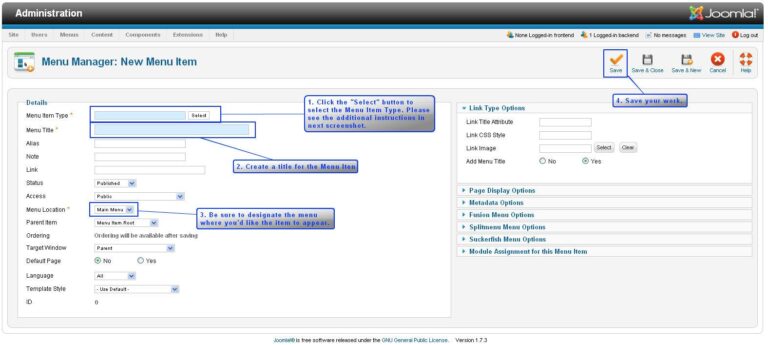Equatorial Guinea Revamps Licensing Framework to Attract Oil and Gas Investors
In a decisive move to rejuvenate its oil and gas sector, Equatorial Guinea has officially relaunched its open-door licensing program at a high-profile event in Houston, Texas. This relaunch sets the stage for the eagerly awaited 2025-2026 licensing round designed to draw international energy investors and foster strategic global partnerships. Announced during African Energy Week 2025, this initiative reinforces Equatorial Guinea’s ambition to cement its status as a key energy hub within the Gulf of Guinea.
The government’s renewed emphasis on transparent collaboration with global oil majors signals a dual commitment: expanding hydrocarbon output while promoting sustainable economic growth through responsible resource stewardship.
Features of the New Open-Door Policy and Investment Highlights
This updated licensing framework introduces several compelling incentives aimed at attracting foreign direct investment while encouraging innovation and environmental responsibility:
- Attractive Fiscal Regimes: Tailored financial terms designed to accommodate diverse international exploration companies seeking competitive advantages.
- Strategic Partnerships: Focus on fostering joint ventures that blend technical expertise with capital resources for optimized project delivery.
- Sustainability Integration: Commitment to embedding green technologies and reducing ecological impacts throughout exploration and production activities.
The Houston event provided an essential forum for global stakeholders, spotlighting promising opportunities within Equatorial Guinea’s energy landscape. Known historically for rich offshore reserves, the country is now revitalizing investor interest by releasing detailed data on available license blocks ready for bidding. Key areas include:
| License Block | Location Description | Total Area (kmﺡﺎ) |
|---|---|---|
| EGB-A1 | Basin off Bioko Island (Offshore) | 1,200 |
| EGR-M1 | Mainland Rﺣo Muni Region (Onshore) | 1,500 |
| EGB-GG3D | Deepwater Sector of Gulf of Guinea (Offshore) | >2,100 kmﺡﺎ |
Investor Perspectives Ahead of the Upcoming License Round 2025-26
The reactivation of this open-door approach heralds significant shifts likely to reshape investment patterns across Equatorial Guinea’s hydrocarbon sector. Essential insights include:
- Diverse Government Backing: Authorities are prioritizing transparency by offering extensive data access alongside streamlined regulatory processes.
- A Competitive Business Climate:The introduction of favorable fiscal incentives positions Equatorial Guinea among Africa’s top destinations for upstream investments after nearly six years without new rounds.[source link]
- Tapping Untapped Potential:ﺡ ﺡ –ﺡ The underexplored basins-especially deepwater zones where recent advanced seismic surveys have revealed promising hydrocarbon systems-offer lucrative opportunities.
This evolving scenario aligns well with shifting global energy demands that emphasize diversification while responsibly managing fossil fuel development. For investors eyeing Central Africa’s markets, these factors present compelling reasons to engage early during this transformative period.
- Strengthened Collaborative Opportunities:ﺡ – The policy encourages partnerships between local operators and multinational firms facilitating technology exchange along with shared risk management.
- Access To Advanced Technologies: – Cutting-edge tools such as AI-enhanced seismic imaging or autonomous underwater vehicles (AUVs) are expected to be deployed extensively improving discovery success rates.
- Environmental Compliance Incentives: – Contractual frameworks embed ESG principles aiming at attracting sustainability-focused capital committed to long-term value creation.
- Access To Advanced Technologies: – Cutting-edge tools such as AI-enhanced seismic imaging or autonomous underwater vehicles (AUVs) are expected to be deployed extensively improving discovery success rates.
Expert Guidance from African Energy Week Panelists 2025
A panel comprising industry veterans convened during African Energy Week offered vital strategies prospective investors should consider when entering Equatorial Guinea’s dynamic oil & gas market ahead of the forthcoming licensing round. Their advice emphasized conducting meticulous due diligence regarding local regulations combined with proactive dialogue with governmental bodies overseeing resource governance.[source event summary link if needed or remove superscript if no source needed]]
Cultivating robust relationships with indigenous partners was underscored not only from operational perspectives but also because aligning projects closely with national socio-economic goals enhances long-term sustainability.
Additional recommendations included:
- Regulatory Compliance Alignment: – Ensuring adherence both locally & internationally reduces legal risks tied to cross-border investments.
- Investment in Capacity Building: – Supporting workforce development initiatives empowers communities while nurturing domestic technical skills.
- Comprehensive Risk Management Strategies: – Mitigating geopolitical uncertainties through diversified asset portfolios helps shield against market fluctuations.
The experts further highlighted embracing innovative technologies like carbon capture integration alongside conventional extraction methods could position operators advantageously amid accelerating decarbonization trends worldwide.
- Investment in Capacity Building: – Supporting workforce development initiatives empowers communities while nurturing domestic technical skills.
Conclusion: Charting Equitorial Guinea’s Strategic Energy Future
The revival of its open-door licensing scheme marks a pivotal milestone as Equitorial Guinea prepares for its major bid round slated between 2025-26.[detailed announcement here]. This initiative not only signals eagerness toward attracting foreign direct investment but also reflects readiness in adopting sustainable practices aligned with ongoing global energy transitions.
As attention converges on this West African nation during African Energy Week 2025 events unfold globally observing how these efforts may influence regional supply chains-and potentially inspire similar frameworks across other emerging markets throughout Africa.
Ultimately, Equitorial Guinea’s endeavors transcend mere hydrocarbon expansion-they embody aspirations toward building resilient economies driven by balanced growth strategies integrating fossil fuels alongside renewable energies. The months ahead will be critical as international stakeholders seek meaningful collaborations shaping Africa’s future energy narrative beyond traditional models.







